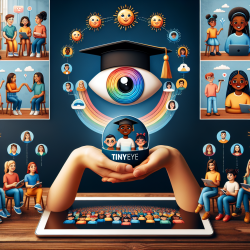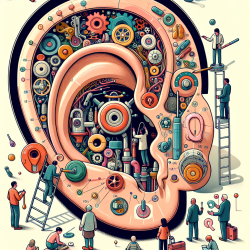According to the study, AR games provide an immersive and interactive environment that significantly enhances children's learning experiences. The research focused on designing AR educational games that align with the principles of learning behavior input. The outcomes were impressive, showing that AR games could:
- Increase student engagement and motivation.
- Provide immediate and corrective feedback on pronunciation.
- Reduce anxiety associated with language learning.
- Enhance the retention of learned concepts through repeated practice.
Here’s a closer look at how you can implement these findings to improve your practice:
1. Designing Engaging AR Games
One of the critical elements highlighted in the study is the design of the AR games. These games should be user-friendly, visually appealing, and aligned with educational objectives. Using platforms like Unity3D and 3ds Max, educators can create customized AR games that cater to the specific needs of their students.
2. Providing Immediate Feedback
The study emphasized the importance of immediate feedback in learning pronunciation. AR games can be programmed to provide instant corrections, helping students recognize and rectify their mistakes in real-time. This approach not only accelerates learning but also builds confidence in young learners.
3. Reducing Learning Anxiety
Learning a new language can be daunting, especially for children. The interactive nature of AR games creates a safe and engaging environment where students can practice without the fear of judgment. The study found that this significantly reduces anxiety, making the learning process more enjoyable and effective.
4. Encouraging Repeated Practice
Repetition is key to mastering pronunciation. AR games allow students to practice repeatedly in a fun and engaging way. The study showed that students who used AR games demonstrated significant improvement in their pronunciation skills over time.
5. Monitoring Progress
AR games can track students' progress and provide valuable data on their performance. This data-driven approach allows educators to tailor their teaching strategies to meet the individual needs of each student, ensuring optimal learning outcomes.
In conclusion, the integration of AR games into English pronunciation teaching holds immense potential. By creating engaging, interactive, and supportive learning environments, we can significantly enhance children's pronunciation skills and overall language proficiency. As practitioners, it is crucial to stay abreast of such innovative approaches and continuously seek ways to improve our teaching methodologies.
To read the original research paper, please follow this link: The Practice and Application of AR Games to Assist Children's English Pronunciation Teaching.










